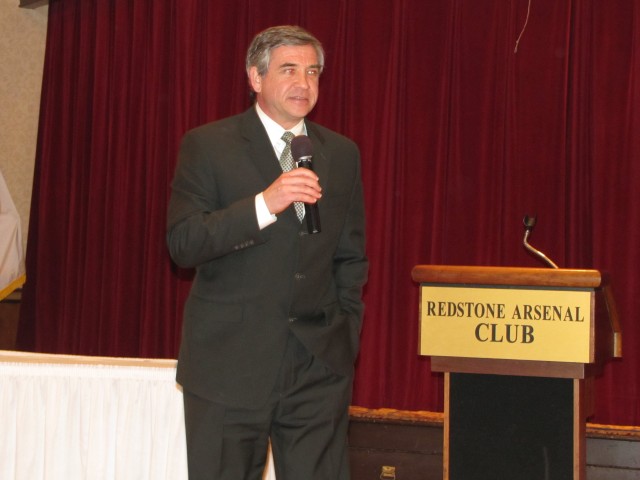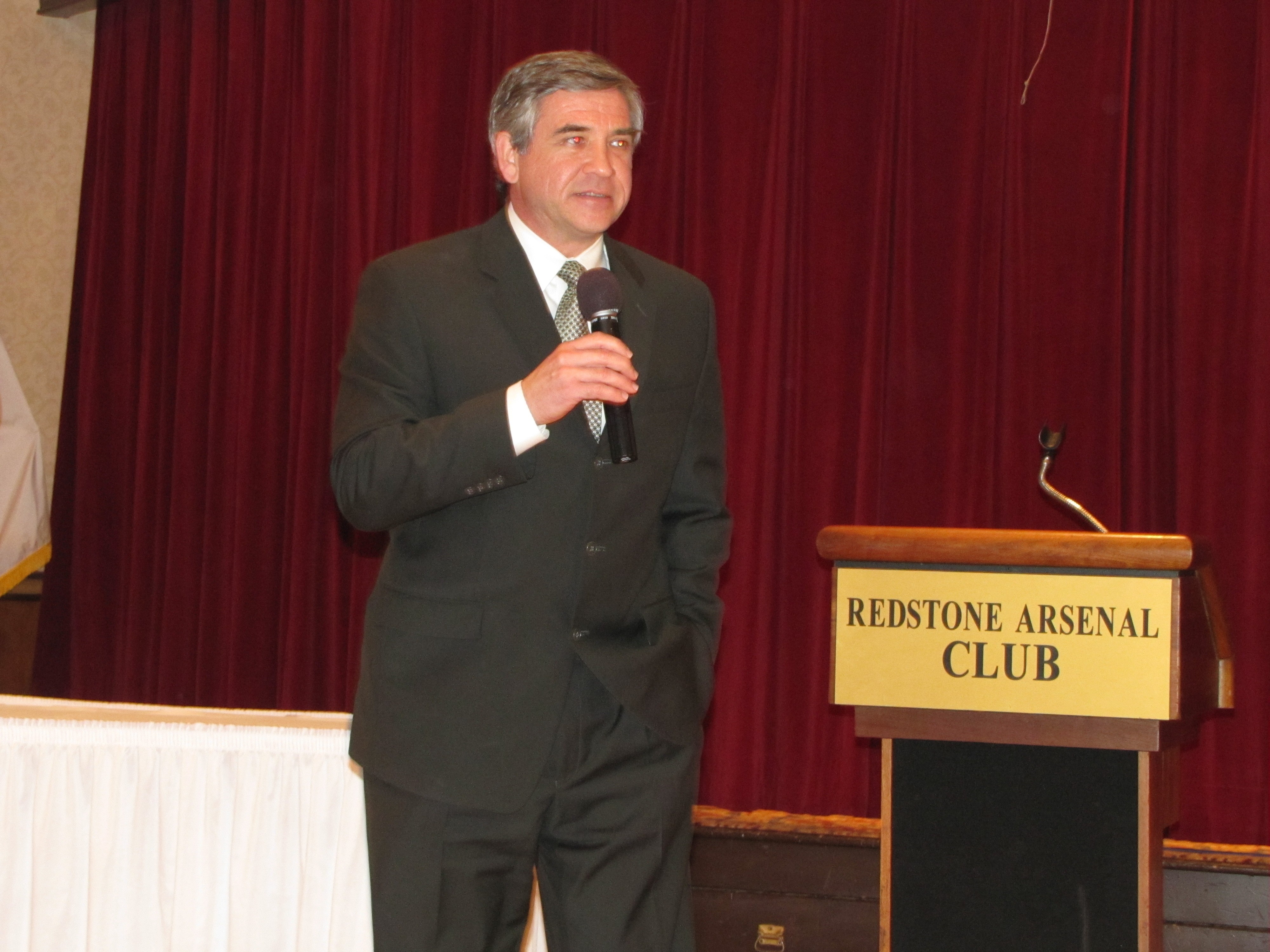
REDSTONE ARSENAL, Ala. -- Before focusing on the message he was delivering at Redstone Arsenal's National Prayer Luncheon on Friday, retired Chief Warrant Officer Mike Durant thought he should give his audience the "short version" of what is widely known as his "Black Hawk Down" experience.
After all, 17 years have gone by since this Black Hawk pilot was captured by Somalia warlords. And not everyone has seen the movie or read the national bestselling book that made both Durant and his 1993 mission famous.
So, Durant shared with his audience at the Officers and Civilians Club the story of Somalia "that changed my life."
In 1993, he was part of Restore Hope, a peacekeeping mission in Somalia to bring stability to a war-torn country so that relief organizations could provide food and resources for the country's starving people.
"It was a selfless act on our part," Durant said. "There was no oil interest. No strategic interest. But there we're suffering people, a lot of suffering people."
"The country was so unstable that none of our goodwill was getting to the people themselves. It was stolen by the warlords. They do evil things. They steal what was intended for their own people to build up their empires."
In the fall of 1993, U.S. military forces had two months of success, bringing some stability to Somalia's capital city of Mogadishu so that relief organizations could help the starving people.
They also captured 26 Somali warlords, including the second most wanted warlord.
"But the longer you do something and the more success you have at it, complacency tends to sit in," Durant recalled. "On October 3, 1993, 74 Americans were wounded, five Black Hawks were shot down, 18 were killed and I fell in the hands of the enemy."
During the Battle of Mogadishu, Durant's Black Hawk was hit in the tail by a rocket-propelled grenade and crashed. Durant and his crew of three survived, although Durant was unconscious and all were badly injured. Two Delta Force snipers - Master Sgt. Gary Gordon and Sgt. 1st Class Randy Shughart - volunteered to defend the Black Hawk's position from advancing Somalis. They killed an undetermined number before running out of ammunition and being killed, as were Durant's three crew members.
"When I regained consciousness, I had a back injury, a broken leg and broken bones in my face. They had shot me," Durant said. "I had injuries that would have led to me dying in 35 to 40 days."
Instead, Durant spent 11 days in captivity, being released after heated negotiations. He went on to fly with the 160th Special Operations Aviation Regiment and retired from the Army in 2001 with more than 3,700 flight hours.
And, then, with his audience understanding a bit of his background, Durant shared his experiences in recovery from his ordeal.
"I realize there are physical and psychological parts of recovery. I think we're all familiar with that," he said.
But he added there are also professional and spiritual aspects to recovery.
It wasn't long after his release that a physically healing Durant learned the "Army was going to ground me. They were not going to let me fly anymore. When you are told you are not going to be able to do the one thing that you want more than anything, you resist it. We want to fight that."
"I was a pilot struggling to get back that part of my life and get my identity back."
Durant set out to beat the Army's pending decision. In early 1994, with his cast removed, Durant committed to running in the Marine Corps Marathon, only 10 months later.
He promised himself that he would not quit, he would cross the finish line no matter what, he would beat talk show host Oprah Winfrey's marathon time of the year before, he would beat the marathon time of a Boston Marathon runner who he knew and he would beat his own previous time.
"I almost qualified for the Boston Marathon," said Durant, whose race time was three hours, 37 minutes. "But the authority who was going to retire me could not say 'no' to my desire to continue to serve. After I ran that race, it was a no-brainer decision. He signed the waiver and I flew for five more years."
Durant flew with the Army's Night Stalkers.
"Very few things are impossible," he said. "You just have to find the person who can change the rules and make them see your side. You have to keep moving forward. Never give up."
Though he resolved the issues related to his physical and professional well-being, it took longer for Durant to overcome the psychological damage.
"If I started talking about Somalia, I would start crying," he said. "I'm a human being. My crew was lost. Half my platoon was gone. It was a difficult thing to get through."
And that's where the fourth dimension of his recovery - his spirituality -- came into focus as he worked to overcome the psychological hurt.
"I prayed more in the 11 days of captivity than I have my entire life," he said. "And, for all He did for me, He didn't ask for anything in return."
During his recovery and his struggle to get back in the pilot's seat, Durant relied on God for strength and direction.
"Ask God to help you make those right decisions to do the things you hope will take you where He wants you to go," he said. "I have used God for my guideposts.
"I feel blessed. I feel better today about how I am and where I'm going than I did 17 years ago when all this happened."
Durant has written two books about his experiences, "In the Company of Heroes" and "The Night Stalkers." His story played a big part in the book and movie based on the Battle of Mogadishu, known as "Black Hawk Down."
Durant is the president and chief executive officer of Pinnacle Solutions Inc., a training and simulation company based in Huntsville. He speaks regularly to various military groups on his experience.

Social Sharing